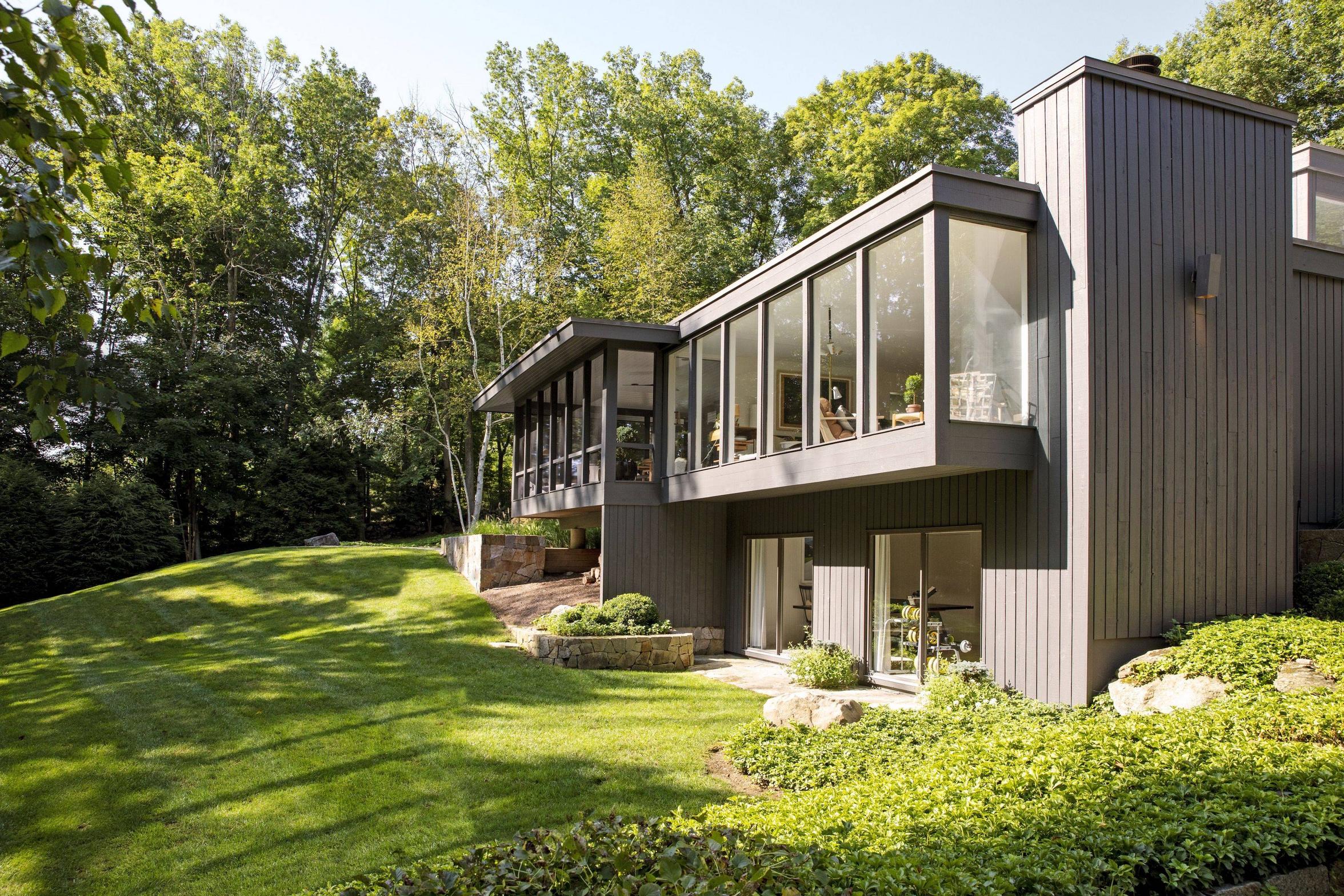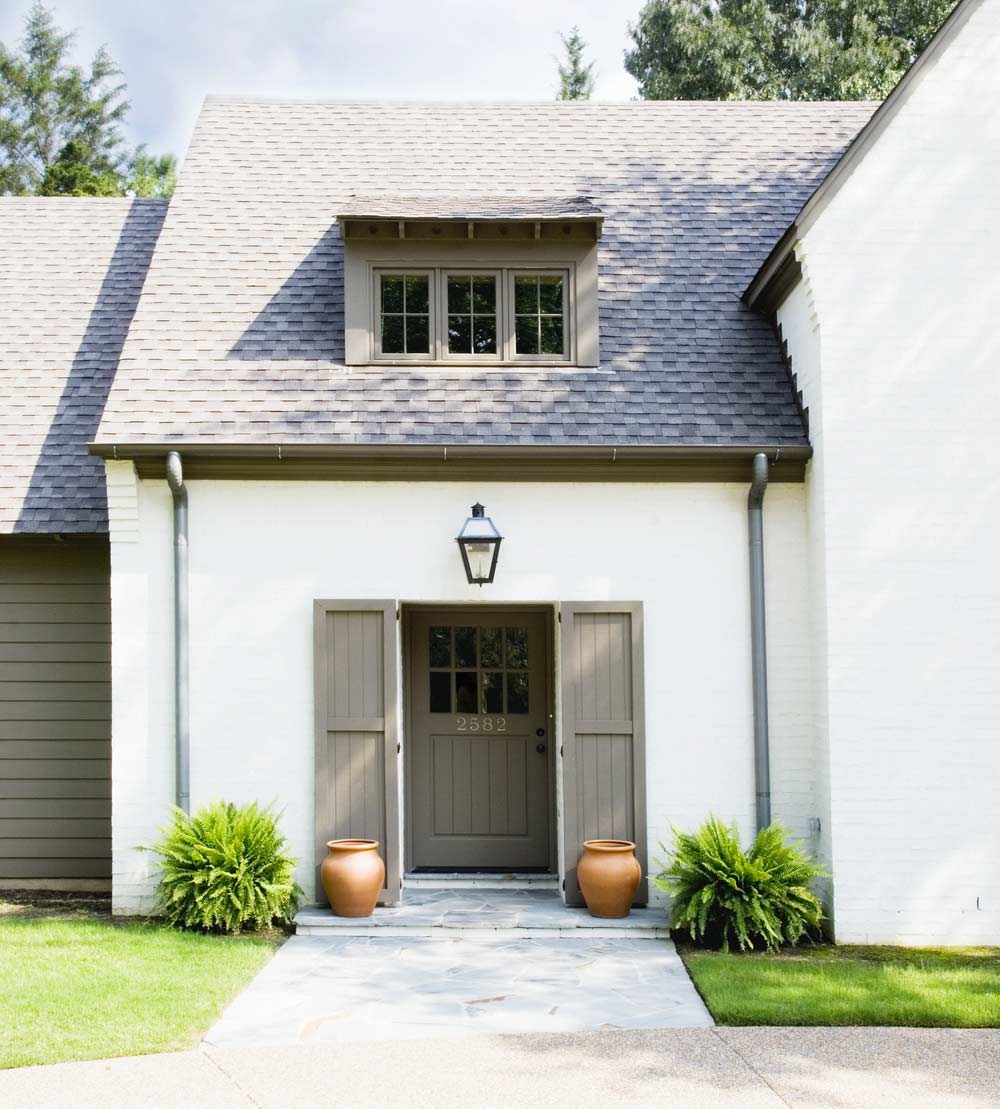
A great way to enhance the look of your house and increase its value is to paint it. It is important to think about a lot of things before you make a decision. A great paint job can extend the life of your exterior surfaces for many years. Also, it's important to choose a quality paint that will hold up against the elements. It is also a good idea to hire professionals to complete the job.
The first step is to measure your house. Take measurements of all rooms and areas. Measurements of windows, doors and roofs are necessary. You can use a laser measurement device to assist you in this task.
Once you have measured the areas that you are interested in painting, it is time to choose your paint color. You can choose a single color or a combination depending on the theme of your home. For instance, if you have a brick house, you might choose a brick red or gray. You can get samples of the material to confirm that it will match your interior and exterior decor.

You should also consider how often your exterior surfaces will need to be painted. It's possible to have a lot of peeling paint if you don’t touch it up. This is where caulking can help. You might need to purchase additional equipment. If you have multiple-story homes, this could include scaffolding. You will need a second ladder if you want to paint on an uneven surface.
You should also consider how the color will look under different lighting conditions when choosing a paint color. You will see color change at different times of day so make sure the color you choose can withstand the elements. For instance, if you live in a humid area, you'll probably need to choose a paint that will dry faster.
The best time to paint your home is during the warmer months. However, if your home is in a wet climate, you will need to plan your work during dry seasons.
Another thing to remember is that lighter colors tend to last longer than darker ones. But that doesn't mean you should go for dark colors. Dark colors can fade more quickly and require more paint coats to achieve the desired saturation. You might need a higher-quality paint if you decide to use a darker color. You may also require a better primer.

It's possible to avoid headaches and save money if you research the process. Take a drive around your neighborhood to see the houses that have the house colors you're looking for. Make sure you check out local magazines about home improvement. A set of samples can be purchased at your local shop.
FAQ
How do I renovate my house with zero money?
Here are some tips to help you renovate your home without spending too much money.
-
You should create a budget plan
-
Find out the materials you require
-
Decide where to put them
-
Make a list.
-
Determine how much money you have
-
Plan your renovation project
-
Get to work on your plans
-
Do some online research
-
Ask family and friends for their help
-
Get creative!
How should house renovations be ordered?
First, decide where you want everything to go in your renovations. You should consider how you want to market your home to potential buyers if you are planning to sell your house soon. Next, think about how you want your living space, including the kitchen, bathroom and living room. Once you have decided which rooms you want to renovate, you should start looking for contractors who specialize in those areas. After you have hired a contractor to work on your project, it is time to get started.
How many times should I change my furnace's filter?
It all depends on how frequently your family uses your home heating system. It is worth changing your filter more often if you intend to spend a lot of time outside during winter months. You may be able wait longer between filters changes if you don't often leave the house.
A furnace filter can last about three months. This means that your furnace filters should be changed every three to four months.
For information on when to replace your filter, you can consult the manufacturer. Some manufacturers suggest changing your filter every heating season. Others recommend waiting until you see dirt buildup.
Statistics
- Design-builders may ask for a down payment of up to 25% or 33% of the job cost, says the NARI. (kiplinger.com)
- According to the National Association of the Remodeling Industry's 2019 remodeling impact report , realtors estimate that homeowners can recover 59% of the cost of a complete kitchen renovation if they sell their home. (bhg.com)
- Most lenders will lend you up to 75% or 80% of the appraised value of your home, but some will go higher. (kiplinger.com)
- They'll usually lend up to 90% of your home's "as-completed" value, but no more than $424,100 in most locales or $636,150 in high-cost areas. (kiplinger.com)
- The average fixed rate for a home-equity loan was recently 5.27%, and the average variable rate for a HELOC was 5.49%, according to Bankrate.com. (kiplinger.com)
External Links
How To
5 Things You MUST Know Before Starting Your Home Renovation
-
Do you really want this? It's likely that you will need assistance if you plan to tackle a large home improvement project, such as remodeling your kitchen or bathroom or building a new home. However, if you feel unsure about your ability to complete such a big task by yourself, you might consider hiring someone to help you. This could cost you a lot of money and time, and you may not get any real benefit from it. Instead, hire someone who has experience in this field to assist you. They'll save you a lot of hassle and stress, and you'll still end up with a beautiful space to live in.
-
How much should I spend? This may seem obvious but it could make things worse if you spend too much on your renovation project. It's because you'll most likely be responsible for paying back the majority of the costs. Keep your budget in mind. Without it, you may end up paying a lot but not getting anything back.
-
Do I prefer to hire professionals or DIY? - There's no right or wrong answer here, but we'd recommend hiring professional tradespeople if you can afford them. They can give you sound advice about how to proceed with your project. They can install the plumbing correctly and make sure that it is done safely. On the flip side, DIY projects usually involve lots of trial and error, which means you'll have to learn a lot of lessons the hard way. There will be many problems along the way.
-
Are you able to afford it? Do not underestimate the costs of a renovation. Even if you believe you can handle it yourself, it might be necessary to borrow money from your family or friends just to cover the costs. If you are planning on selling your existing property soon after finishing the renovations, it is important to include the cost of selling it in your calculations.
-
What is the best place to start? There are no right or wrong places to begin when choosing where to start. We recommend that you pick something that you are passionate about. If you enjoy what you do, you will be more motivated to continue working and less likely procrastinate. You should also avoid areas that require extensive maintenance. You should avoid redecorating your living room if it is always covered in dirt and dust.